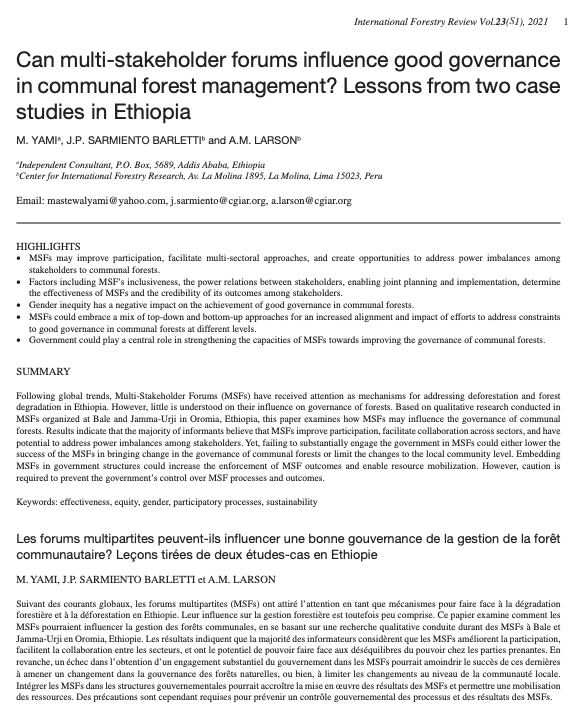Resource information
HIGHLIGHTS
- MSFs may improve participation, facilitate multi-sectoral approaches, and create opportunities to address power imbalances among stakeholders to communal forests.
- Factors including MSF’s inclusiveness, the power relations between stakeholders, enabling joint planning and implementation, determine the effectiveness of MSFs and the credibility of its outcomes among stakeholders.
- Gender inequity has a negative impact on the achievement of good governance in communal forests.
- MSFs could embrace a mix of top-down and bottom-up approaches for an increased alignment and impact of efforts to address constraints to good governance in communal forests at different levels.
- Government could play a central role in strengthening the capacities of MSFs towards improving the governance of communal forests.
SUMMARY
Following global trends, Multi-Stakeholder Forums (MSFs) have received attention as mechanisms for addressing deforestation and forest degradation in Ethiopia. However, little is understood on their influence on governance of forests. Based on qualitative research conducted in MSFs organized at Bale and Jamma-Urji in Oromia, Ethiopia, this paper examines how MSFs may influence the governance of communal forests. Results indicate that the majority of informants believe that MSFs improve participation, facilitate collaboration across sectors, and have potential to address power imbalances among stakeholders. Yet, failing to substantially engage the government in MSFs could either lower the success of the MSFs in bringing change in the governance of communal forests or limit the changes to the local community level. Embedding MSFs in government structures could increase the enforcement of MSF outcomes and enable resource mobilization. However, caution is required to prevent the government’s control over MSF processes and outcomes.
Keywords: effectiveness, equity, gender, participatory processes, sustainability

